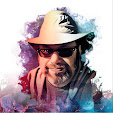 Having just finished watching the first season of "Heroes," I can't help but draw certain comparisons to a great series of novels that came out beginning in 1987 called Wild Cards.
Having just finished watching the first season of "Heroes," I can't help but draw certain comparisons to a great series of novels that came out beginning in 1987 called Wild Cards. Edited by George R. R. Martin, Wild Cards is an anthology series, written by a number of different authors over 17 volumes to this point. The premise is simple: In 1946, just after the close of World War II, an alien race from the planet Takis decides to test a viral weapon on the population of Earth. The weapon falls into the hands of a human, who uses it to hold New York for ransom. A teenage hero of the war called Jetboy tries to foil the plot, but the virus gets released over the city. The Wild Card virus, has severe effects. 90% of the people affected by it die horribly, which is known as "drawing the black queen," 9% survive but are deformed and called Jokers, and the lucky 1% gain super powers and are known as Aces. The effects that this virus and these people have on the world is what the series is all about. The setting of the books spans decades. It begins just after World War II, and runs until present day. There are stories that take place during the Korean conflict, the McCarthy era, Viet Nam, Watergate, and pretty much every interesting time in our history.
The characters in Wild Cards, even the ones with powers, shy away from the tight costumes and flashy code-names from comic books. Well, they stay away from the costumes anyway. One of my favorites is The Great and Powerful Turtle, who is a shy man with telekinetic powers who builds armored shells out of junk cars for protection. The Sleeper starts out as a poor kid in junior high who changes powers and appearances every time he goes to sleep. He soon becomes addicted to stimulants trying to forgo his transformations; some of them are not very pleasant. Captain Trips is a counter-cultured biochemist who gets his powers from various powders that he creates. His "friends," as he calls them, are different personalities that he becomes when he takes them. They are all named and themed after 60s songs. You can find an index to virtually all the Wild Cards characters at this site. There are spoilers within, so beware.
The connections to "Heroes" lie in some feature characters and a few supporting ones. Senator Gregg Hartman has a persona named Puppetman who controls people after physical contact and uses these puppets for political gain. Nathan Petrelli might owe a bit of his existence to him.
Deadhead eats people's brains and gains their memories. "Heroes" villain Sylar gains abilities of people whose brains he eats. I actually created a villain called Abattoir back in the early 90s who gained powers by eating the hearts of his victims, much to my friends' collective chagrin, and I fully admit that I got the idea from Deadhead.
Demise is a contract killer who survived drawing the Black Queen and shares his death psychically with others. But his real gift is his regenerative ability, much like Claire (the cheerleader) has. Demise ran into problems a few times during the series when his bones are not set correctly and they heal in the wrong position.
There are any number of telepathic characters like Matt Parkman in Wild Cards, not the least of which is Dr. Tachyon, the sympathetic Takisian dedicated to helping those afflicted with the Wild Card virus. Well, he's dedicated when he's not drunk or deported.
Character similarities aside, the tone of Wild Cards is very similar to that of "Heroes," and I think that's why I liked it so much. I do love the superhero genre, with the costumes and silliness, but I also enjoy some serious science fiction where the only place you have to suspend your disbelief is accepting that the existence of extranormal power. If you liked "Heroes," give Wild Cards a try.



1 comment:
Jim, it has been ages since I read my Wild Card paperbacks. I still have all of the series on my bookshelf in my 'cave'. I may need to revisit them again.
Post a Comment